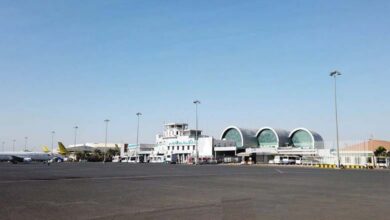The Independent: The slavery of foreign workers continues in Qatar

The Ordinary people always dream of traveling to one of the Gulf countries and working for several years so that they can secure a sum that ensures the establishment of a project or the purchase of land in their homeland in order to guarantee their children a better future. The stumbling luck of some of these tribesmen leads them to travel to Qatar in search of a better life. But once they arrive, they discover that they have become slaves in the hands of the Qatari regime and they cannot return to their country. They work in hard work that exceeds human capacity with low wages that do not suit the consumption of their health and age. According to the British newspaper, The Independent, what is happening in Qatar might be called modern slavery, where hundreds of thousands of workers live in very difficult humanitarian conditions, while they are prevented from leaving and forced to work for a very simple salary or without harsh climate conditions, and huge fines.
British mobility
The British newspaper stressed in its report – before the start of the World Cup next November – that all teams should watch a documentary film exposing the suffering of hundreds of thousands of workers, in order for each team to study what should be done in these violations, confirming that Harry Keane, the British Football Team Leader, took the initiative amid collective plans with other teams to criticize Qatar’s human rights violations.
The paper reported that the documentary, which reveals the suffering of hundreds of thousands of workers, is available on Amazon. It reflects the real impact of social crises on the world.
Qatari concentration camps
The newspaper reported that the film includes the tragedy of a group of migrant workers in a company called GCCC in Qatar, who were allowed a rare opportunity to experience something like normal life by playing in a soccer tournament with other companies. It explained that most of the workers were deceived after they traveled to Qatar, where they received promises to work in jobs, and were surprised to find that they were working in construction work, in return for very low pay.
A worker from Nepal named Badam said: Changing our jobs for very low-wage construction workers reflects the situation that hundreds of thousands of workers live in here, he said. When I discovered the truth, it was too late.
“We found ourselves in a kind of concentration camp, with salaries that are almost non-existent, and with very difficult jobs that all relate to construction,” he said. “There is no chance of returning, as we hand over our passports to the sponsor and we cannot leave without his consent, in addition to the exorbitant recruitment fees that turn us into slaves and make our lives like slaves.”
He continued: “We can’t even leave the camp without the permission of our superiors, we can’t do anything freely.”
A worker named Paul from Kenya said: “This huge appearance of a drop of an airplane has another face as hell, this country is only good for the wealthy, but for workers it is the end for us,” he said. “Many workers have contracted psychological diseases, and some even abuse their colleagues.
Qatari racism
Professor Tendai Ashium, the UN special rapporteur on contemporary forms of racism, has already described how the entire structure of migrant workers is based on structural racial discrimination against any non-national, namely workers from South Asia and sub-Saharan Africa, who enjoy much less human rights.
Amnesty International’s studies found an additional level of wage discrimination among workers on the basis of nationality, race and language. Qatar gives preference to foreigners and Arabs, and a guard working in the offices of a sporting organization told Amnesty International in a recent report on the security sector: “They pay us on the basis of nationality, you might find Kenya earning 1,300 riyals, while the Filipino earns 1,500 riyals and the Tunisian earns 1,700 riyals.”
The paper said that after eight years, and despite much talk about reform in Qatar, nothing has changed, pointing to criticism by Amnesty International and other human rights groups of the Qatari state repeatedly for introducing legislation, but without overseeing any real change in reality. Workers are still suffering from the same problems as in their film, and they are also critically still receiving the same pay as they did eight years ago, which amounts to about $200 a month.












